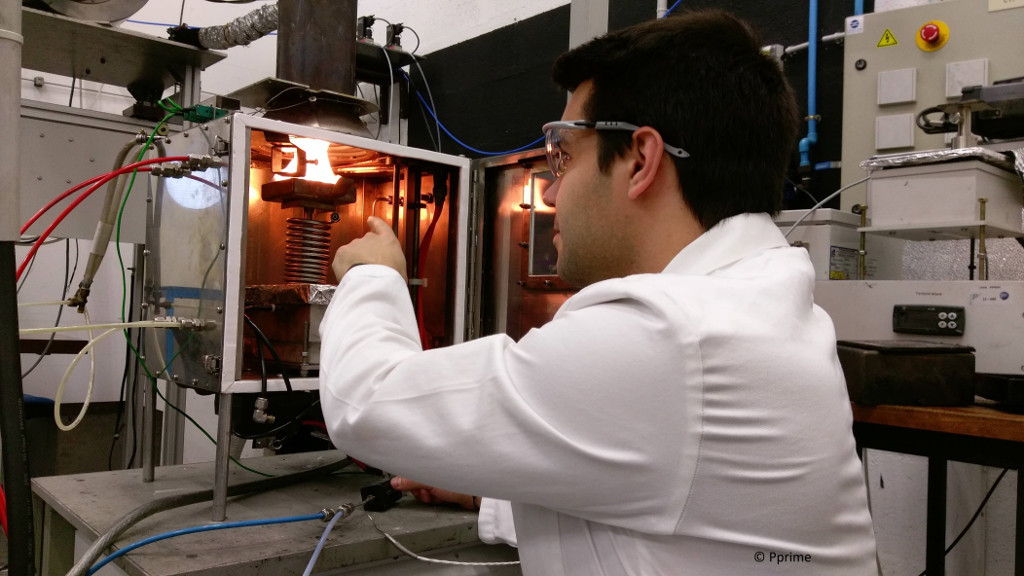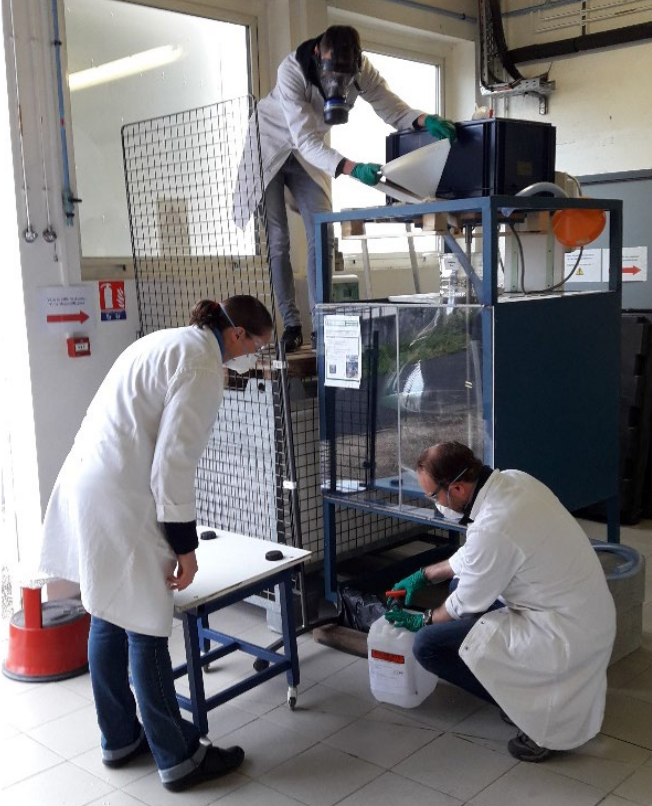The interdisciplinary Curiosity team of the Pprime Institute is pleased to welcome Ms. Isabelle Jouteur for a year as part of a CNRS delegation. Isabelle Jouteur is a Professor of Latin language and literature at the University of Poitiers. Since 2013, she has been associated with the working group on the reconstruction of the battle of Actium, confronting scientific approaches (oceanography, physics, mathematics, naval architecture) and human sciences (history, linguistics, mythology). Her research project focuses on the history of the belief in the powers of the remora in long diachrony and the emergence of a scientific point of view on the issue from the Renaissance onwards (magnetism, mechanics, fluid physics).
Catégorie d'actualités: News
Contribution to the modeling and numerical simulation of semi-transparent solid / fluid
JOB OFFER: POST-DOC / Very high performance optical treatments
In this context, we wish to recruit an experimenter with good expertise in physics of
condensed matter especially in the field of thin films; field including their growth, their
structural characterization and the study of their physical properties …
Post-Doc / 18 months (renewable)
Profil:
Optifum: towards innovative products for fire safety

With the growth of the wood-energy sector, whose activity has doubled over the past ten years, the optimization of smoke extraction ducts is a major issue in fire safety. Poujoulat, a specialist in chimney flues, has been collaborating since 2012 with the Pprime1 Institute on research topics concerning fire safety. The partners decided to strengthen and perpetuate their cooperation by creating the Optifum joint laboratory, supported by the National Research Agency (ANR). The heterogeneous Combustion team of the Pprime Institute and the Ceric laboratory (Research center for chimney industries research) in Poujoulat will work on two scenarios:
- Scenario 1: a fire breaks out in the room where the chimney flue is located and it must be avoided that this is a vector of transmission of fire to adjacent rooms. The studies will endeavor to assess the structural behavior of the duct and the transmission of the heat released by the incident via the duct.
- Scenario 2: a fire breaks out in the duct itself and the fire should not spread outside. Since fire is associated with thermal decomposition and then with the ignition of deposits accumulated within the duct, the aim will be to characterize these deposits with precision, as well as the characteristics of the fire that they can generate.

Poujoulat and the Pprime Institute will pool experimental resources and strengthen the sharing of their expertise. Test benches will also be co-developed by the partners. Experimental studies will characterize the flammability of deposits in conduits and better understand the mechanisms that come into play during a fire. These results will lead to the development of two numerical models. One will model overheating and heat transfer, while the other will simulate the formation of deposits within the duct and their combustion. These digital models can then be used by Poujoulat to improve its current product ranges and create innovative products targeting new markets. A doctoral student has already been recruited, in particular thanks to additional support from the New Aquitaine region.
« For the Pprime Institute, the studies carried out in the joint laboratory are an opportunity to tackle themes that have received little attention from research in general, in particular on deposits in heating systems. It is also an opportunity to develop new expertise applicable to other areas of research, ”said Thomas Rogaume, researcher at the Pprime institute and director of the Optifum laboratory. This work will give rise to scientific communications and publications. In total, around fifteen researchers and engineers from the Pprime Institute and Poujoulat will be involved in the projects of the joint laboratory.
1 Institut Pprime : research and engineering in materials, mechanics and energy (CNRS)
Contacts :
Thomas Rogaume / Researcher at the Pprime Institute and Director of the Optifum joint laboratory / thomas.rogaume@univ-poitiers.fr
Lionel Druette / Director of the Research Center for the Chimney Industries and Deputy Director of the Optifum Joint Laboratory / l.druette@laboratoire-ceric.com
Solidarity between Poitevin laboratories has enabled the production of 400 liters of hydro-alcoholic solution
After the agreement between the CNRS and the National Federation of Resources and Support Systems for the Coordination of Health Pathways (FACS), the IC2MP volunteered to manufacture hydro-alcoholic solutions for caregivers and city paramedics.
From the start of containment, the IC2MP identified within the laboratory the products necessary for the manufacture of hydro-alcoholic solution (ethanol, hydrogen peroxide, glycerol). The CNRS’s request then gave the IC2MP the opportunity to show its solidarity with city medical and paramedical professionals.
The EBI and Pprime laboratories joined forces with IC2MP and channeled their resources to our laboratory.
These days, the mobilization of IC2MP volunteer staff has enabled the production of
400 liters of hydro-alcoholic solution. Thank you to everyone who was able to get involved in this
solidarity movement.




